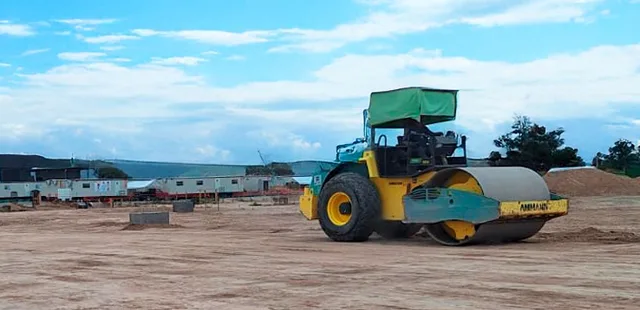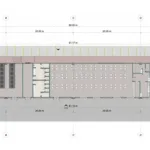septiembre 1, 2025
Soil Compaction: A Key Step for a Lasting Foundation
In any construction project, soil compaction is one of the most important processes to ensure the quality and durability of the structure. Without properly prepared soil, the risk of settlement, cracks, or structural failures increases significantly.

What is soil compaction?
Compaction consists of increasing soil density by reducing the voids between particles. This is achieved by applying mechanical energy with specialized equipment.
Importance of compaction in construction
Properly compacted soil provides key benefits:
- Structural stability: Ensures that the load of the structure is distributed evenly.
- Durability: Reduces the occurrence of differential settlements that can damage floors and foundations.
- Water resistance: Lowers soil permeability, preventing seepage and erosion.
- Safety: Minimizes the risk of deformations in roads, platforms, or foundations.
Factors to consider in soil compaction
For the process to be efficient, the following must be taken into account:
- Soil type: Clay, sand, and silt respond differently to compaction.
- Moisture content: Each soil type has an optimal moisture level for effective compaction.
- Layer thickness: Thin layers are recommended to ensure uniform compaction.
- Proper equipment: Choosing the right machinery is essential to achieve high-quality results.
Soil compaction: The foundation of a lasting structure
Compaction is not a step that can be improvised. It is the foundation of a solid and reliable base, whether for buildings, pavements, or industrial warehouses. Investing in this stage ensures long-term savings by preventing costly repairs.






